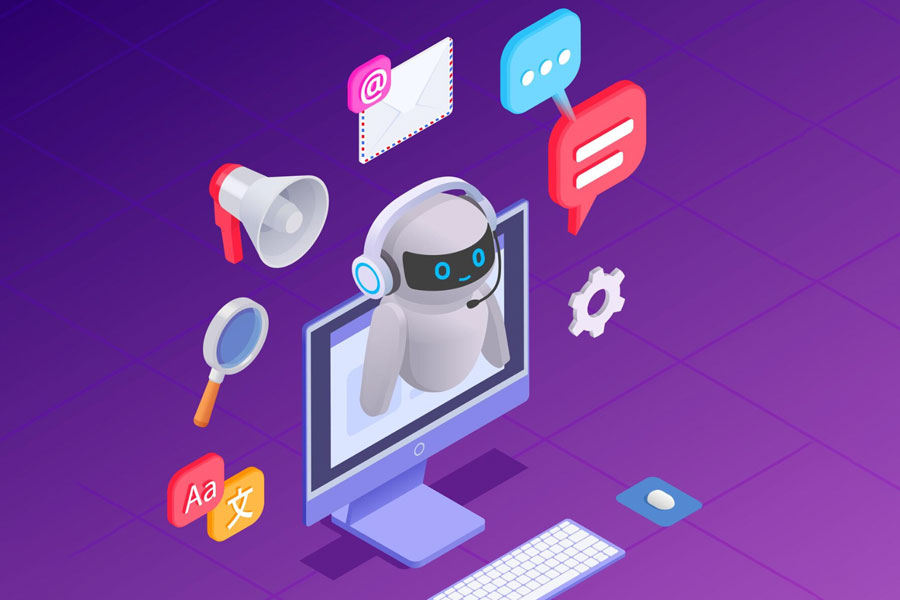The Future of AI-Driven Marketing Automation: Streamlining Campaigns for Better ROI and Customer Engagement
Marketing in the digital age is evolving rapidly, and AI-driven marketing automation is at the forefront of this transformation. By leveraging artificial intelligence, businesses can streamline their marketing campaigns, boost return on investment (ROI), and enhance customer engagement. Let’s dive into how AI-driven marketing automation is shaping the future.
What is AI-Driven Marketing Automation?
Understanding the Basics
AI-driven marketing automation combines artificial intelligence with marketing software to automate repetitive tasks, analyze customer data, and create personalized marketing strategies. This technology helps marketers save time, reduce human error, and make data-driven decisions.
Key Components
The key components of AI-driven marketing automation include machine learning, natural language processing (NLP), and predictive analytics. These technologies work together to understand customer behavior, predict future actions, and deliver personalized content.
Benefits of AI-Driven Marketing Automation
Increased Efficiency
One of the biggest advantages of AI-driven marketing automation is increased efficiency. By automating tasks such as email marketing, social media posting, and lead scoring, marketers can focus on more strategic activities. This not only saves time but also ensures that campaigns run smoothly and consistently.
Personalized Customer Experience
AI can analyze vast amounts of customer data to identify patterns and preferences. This allows marketers to create highly personalized experiences for each customer. For example, AI can tailor email content based on a customer’s past purchases, browsing history, and behavior, making the communication more relevant and engaging.
Better ROI
By optimizing campaigns based on real-time data and predictive analytics, AI-driven marketing automation can significantly improve ROI. Marketers can allocate resources more effectively, target the right audience, and minimize wasted spend. This ensures that marketing efforts deliver the best possible returns.
Applications of AI-Driven Marketing Automation
Email Marketing
AI can optimize email marketing campaigns by analyzing open rates, click-through rates, and customer behavior. It can also personalize email content and send times, ensuring that each customer receives the most relevant messages at the right time. This leads to higher engagement and conversion rates.
Social Media Management
Managing multiple social media accounts can be challenging, but AI-driven automation tools can schedule posts, analyze engagement metrics, and even generate content ideas. These tools help maintain a consistent social media presence and identify the best times to post for maximum visibility.
Customer Segmentation
AI can segment customers based on various factors such as demographics, behavior, and purchase history. This enables marketers to target specific groups with tailored messages, improving the effectiveness of their campaigns. For example, an online retailer can send personalized promotions to customers who have previously shown interest in similar products.
Predictive Analytics
Predictive analytics uses AI to forecast future customer behavior. Marketers can use these insights to anticipate customer needs, optimize product recommendations, and plan future campaigns. This proactive approach helps build stronger relationships with customers and boosts sales.
Challenges and Considerations
Data Privacy
With the increased use of AI and customer data, privacy concerns are more significant than ever. Businesses must ensure they comply with data protection regulations and implement robust security measures to protect customer information.
Maintaining Human Touch
While AI-driven automation offers many benefits, it’s essential to maintain a human touch in marketing. Over-reliance on automation can make interactions feel impersonal. Balancing AI with human oversight ensures that marketing remains authentic and engaging.
Cost and Implementation
Implementing AI-driven marketing automation can be costly and complex. Businesses need to invest in the right tools and train their teams to use them effectively. However, the long-term benefits often outweigh the initial investment.
The Future of AI-Driven Marketing Automation
Continuous Improvement
AI technology is continually evolving, and its applications in marketing will only expand. Future advancements may include more sophisticated predictive analytics, improved natural language processing, and enhanced personalization capabilities. These developments will make AI-driven marketing automation even more powerful and effective.
Integration with Other Technologies
AI-driven marketing automation will increasingly integrate with other technologies such as the Internet of Things (IoT) and augmented reality (AR). This integration will create new opportunities for personalized and immersive marketing experiences.
Conclusion
AI-driven marketing automation is revolutionizing how businesses conduct their marketing campaigns. By streamlining tasks, personalizing customer interactions, and improving ROI, this technology offers immense potential for the future. As AI continues to advance, its role in marketing will only grow, making it an indispensable tool for businesses looking to stay competitive and engage their customers effectively.

